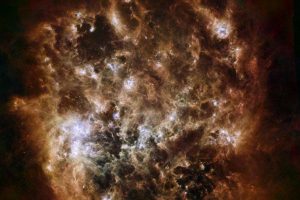The Search For Unintelligent Life

Imagine an alien. If you’ve been influenced by movies and television at all, the creature you’re picturing is probably two-legged, two-armed, bipedal and with a reminiscently human layout – head, eyes and mouth somewhere near the top. And while most of us recognise that this vision of extra-terrestrial life is a bit silly, conversations about life elsewhere in the universe are often still painfully unimaginative – we always seem to end up talking about large, multicellular, intelligent organisms.
We desire nothing more than to find an intellectual counterpart on another planet (even though we sit idly by as highly intelligent creatures on our own planet are in decline). But the chances are if there is life out there, it’s probably nowhere near that complex, although it may well be quite sophisticated in it’s own way.
If I were a gambling woman, I would bet that any life out there in the universe is probably microbial. Here’s why.
Continue reading